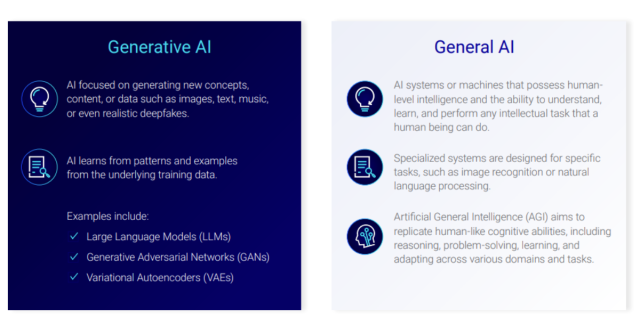How AI is transforming cybersecurity threats and defenses
Discover how hackers use AI—and what you can do to enhance your cybersecurity strategies to fight back.

In today's fast-changing digital world, cybersecurity threats are growing more advanced, and the latest technologies are being used to breach defenses. One of the most significant developments in recent years is the use of Artificial Intelligence (AI), which isn't just transforming legitimate businesses—it's also becoming a powerful tool in the hands of cybercriminals.
In a recent FlexTalk, "How Hackers Are Using AI, and How to Stop Them," Will Bass, VP of Cybersecurity Services at Flexential, delved into how AI is transforming cybersecurity. He explored the intricate tactics employed by hackers as they leverage AI to infiltrate digital environments. From insidious social engineering techniques and the ominous rise of deepfakes to AI-enhanced password guessing, here are the key takeaways to help you learn the latest AI strategies of cybercriminals.
Understanding AI myths and exposing the hype
There are several misconceptions about AI. One is how we differentiate between generative AI and general AI. Artificial intelligence (AI) and generative AI are basically the same thing, with generative AI being a subset of AI. However, it is helpful to dive deeper, as we do in our Ebook, Data centers and the impact of AI, and understand how the two terms are used.
Generative AI
Generative AI refers to a class of AI models or algorithms that can generate new content or data based on patterns and examples present in the training data. Generative AI models learn the underlying distribution of the training data and can then generate new samples that are like the original data.
Large language models (LLMs), generative adversarial networks (GANs), and variational autoencoders (VAEs) are examples of generative AI models.
Generative AI is primarily focused on creating new content, such as images, text, music, or even realistic deep fakes.
General AI
General AI, also known as Artificial General Intelligence (AGI), refers to AI systems or machines that possess human-level intelligence and the ability to understand, learn, and perform any intellectual task that a human being can do. General AI aims to replicate human-like cognitive abilities, including reasoning, problem-solving, learning, and adapting to different contexts.
Unlike specialized AI systems that are designed for specific tasks, such as image recognition or natural language processing, General AI would have broad-based intelligence that can be applied across various domains and tasks.
How hackers leverage AI
So, how do the criminals take advantage of this new frontier? Here are a few ways that AI is being exploited:
- Enhanced phishing: AI is used to craft more convincing phishing emails, increasing the success rate of these attacks.
- Chatbots and deep fakes: These tools create the illusion of genuine communication, furthering the reach and impact of social engineering attacks.
- AI-enhanced password cracking: Advanced algorithms improve the efficiency of password guessing, making traditional password protections inadequate.
Defense strategies
Knowing what is possible is the first step. The next step is to start to take some actions to defend your critical data, including:
- User education: Emphasizes the importance of recognizing new attack vectors and expanding phishing awareness training.
- Multifactor authentication: Advocates for the use of authenticator apps and public/private keys to bolster security beyond passwords.
- Layered defense: Encourages a comprehensive approach involving people, processes, and technology, including the integration of AI defenses.
Testing and readiness
The last step is to implement regular testing into your organizational processes, such as:
- Penetration testing: Regular testing of defenses through realistic AI scenarios is recommended to ensure preparedness against sophisticated attacks.
- Social engineering exercises: Highlights the importance of simulating AI-based social engineering attacks to train employees and improve overall security posture.
The urgency to holistically fortify systems against the ever-learning hacker community is real, and the time to take action is now.
Stay ahead of the curve
At Flexential, our Professional Services team is there to protect your organization from these evolving threats with comprehensive services, including:
- Security, risk, and compliance assessments: Identify vulnerabilities and ensure compliance with industry standards.
- Incident response: Rapidly address and mitigate security incidents to minimize impact.
- Penetration testing: Test your defenses against realistic attack scenarios to uncover weaknesses.
- Disaster recovery: Plan and implement strategies to recover from cyber incidents.
- Cybersecurity program development: Develop robust cybersecurity programs tailored to your organization's needs.
Having an expert partner by your side can help. Learn how Flexential can help safeguard your digital environment and stay ahead of AI-driven cyber threats.







